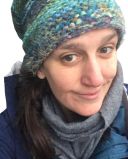Autism
Autism, Dynamic Disabilities, and Spiky Profiles
Is it time we started thinking differently in terms of neurotypes and health?
Posted February 2, 2024 Reviewed by Tyler Woods
Key points
- Functioning labels and outdated terminology are no longer accepted by many autistics.
- New terms and new ways of thinking of neurodivergent people can help them to live well.
- Many neurodiverse conditions are dynamic and have various conditions co-occurring with them.

In my work, I have started to move away from using terms associated purely with autism because I believe that autism is a condition that rarely comes alone. The autism spectrum is huge and varied. I also believe the most damaging thing about being on the spectrum is how it places me at greater risk for other conditions and, if unsupported and unprotected, greatly impacts my health and well-being. In this article, I will argue that we need to think more in terms of neurotypes and dynamic disabilities to best help people who have been diagnosed with autism spectrum condition (ASC).
My medical notes and medical history would be confusing and concerning to medical professionals for numerous reasons, the main one being how many illnesses I have experienced and how I have been adversely impacted by events that often come easily to others. I suffered greatly throughout both of my pregnancies, but due to my medical history, it felt that nobody believed me when I told them how terrified I was.
I strongly suspect I may have been referred to as a "heart sink" patient. This is a patient who seems to be untreatable and who may present to health services regularly, with medical interventions being of little benefit to their symptoms or health. None of the GPs I saw for help were able to treat me properly or tell me I was autistic or that my brain functioned differently before my private diagnosis.
Autism is a medical condition with no cure, yet it increases the likelihood that I will have other conditions and alters how I experience the world. This awareness allowed me to understand that my health needed to be managed differently. There began my journey to understanding my unique neurotype, considering my health more holistically and from a person-centered position, as opposed to a general perspective, which often looks at ailments in a more compartmentalized fashion.
When we think in terms of neurotypes, we begin to create a richer, more detailed, and clearer view of the person as a whole. Treatments will reflect the person that is as unique as DNA or our fingerprints and not a condition. My brain is wired differently in relation to what is deemed to be 'normal' in medicine. How that impacts my physical body, as well as how I communicate, work, and relate to others should be taken into consideration. I had to find that out for myself, and learning it changed everything in terms of my health and wellness. To me, autism is proof that I am not 'typical' in medical terms, but it is only a start when beginning to understand my health and how I manage it. If we are atypical (and I enjoy being so), then we should be treated as such, and our conditions managed by recognizing the typical treatments will not be sufficient. I propose we begin to think more creatively and progressively, by considering neurotypes as dynamic and individual.
My heart sinks when I hear GPs use the term "heart sink," as I suspect many of these people are autistic and undiagnosed. In my experience, the health system is currently not adequately set up nor able to meet the needs of these patients or support them appropriately. Most health practitioners in the U.K.'s National Health Service do not use a holistic approach when working with patients, but doing so is the only way to properly support and care for a person, by treating them as a whole and not separating their parts.
For me to have a good life, I prioritize regulating my nervous system as much as possible. My health and wellness are paramount if I am to be able to work (which is very important to me), parent, and live a life I am happy with. The way I do that is by understanding my neurotype or neuroblend, as I refer to it. These are terms I use and have made up for my practice to support clients who do not fall under one condition. I accept self-diagnosis, as I understand that receiving a diagnosis is a privilege many people are denied. Those who are undiagnosed are often unsupported and may suffer due to not having access to diagnostic assessments or face long waiting lists.
Many late-diagnosed neurodivergent adults are often considered to be anomalies, enigmas, glitches in the matrix, particularly when we have what is referred to as a "spiky profile." Having a spiky profile means that a person is proficient and often very capable in certain areas and possibly deficient or incapable in others. This can be confusing to people with limited experience of these conditions. This term allows us to consider that invisible disabilities are complex and that while a person can look and speak a certain way, that does not mean they don't need support and accommodations in other areas.

A lot of my work involves helping people to understand their unique neurotype by understanding themselves better by being honest about their strengths and limitations. For instance, my neurotype/neuroblend is most definitely not that of a prototypical autistic female. My neuroblend is a combination of autism, ADHD, dyslexia, and dyspraxia. The most prominent of these is ADHD, which I have not been able to get a diagnosis for yet, due to waiting lists and a lack of services. This condition impacts my processing, my social interactions, my communication, my memory, my life expectations, my health, and my ability to regulate sensory experiences. Although I believe all of my conditions impact my health, I think autism is the main reason for most of my struggles.
The truth is that autism is a relentless condition. It evolves quickly, and it is incredibly difficult for those who aren’t living with it to understand the intensity with which it impacts everything in our lives. Many people state that “we are all a little autistic.” While this is often said to be well-meaning, it is inaccurate and, in many cases, has been used to cause harm and minimize our struggles. The fact is not everyone will meet the criteria; therefore, we aren’t all autistic. There is nothing wrong with being autistic, but it is difficult being autistic in this world and that needs to be understood, accepted, and respected.
In my work, I am neuro-affirming and tell all the people I work with that they are the experts on their conditions and their lives. All any of us want is to have the best lives we possibly can. For that to happen, those paid to care and support us must allow us to be the experts of our conditions and lived experiences. None of us are the same, but compassion, action, and care have always helped me while I did everything I could to stay well.
My heart never sinks when I meet a new client. Rather, it is happy they have reached out for support, and that is enough to lift me because many others haven’t been as fortunate.
To find a therapist near you, visit the Psychology Today Therapy Directory.




